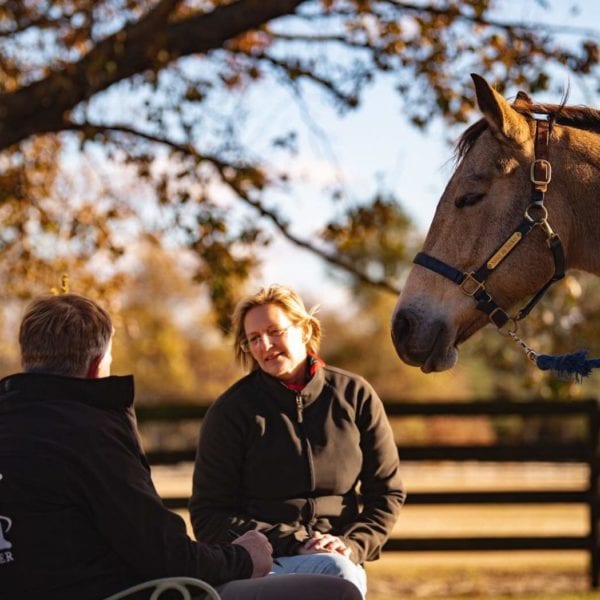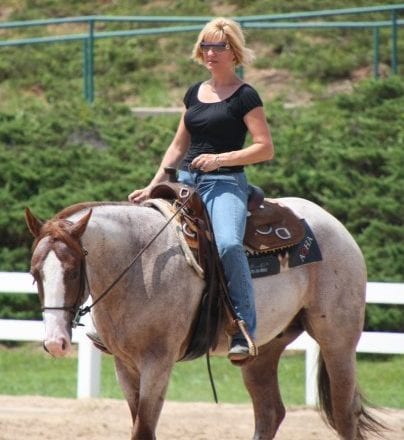There are often just two little words that can stand between making the perfect match between horse and rider: vet – check. Whether you’re on the buying side, the selling party or somewhere in-between, getting a quality pre-purchase exam completed isn’t just as easy as calling up the closest vet and getting a “pass/fail” score that will predict a horse’s future health and success.
The reality is that there are multiple diagnostic tools available now and there are many choices to be made in determining what information you need in a vet check, as well as what to do with that information.
GoHorseShow spoke with two industry experts with experience from different sides of the pre-purchase exam (PPE) to compile some guidance to help you better understand what to expect from a pre-purchase exam.
How can you make the best choices for yourself and your wallet, and when do you need a pre-purchase exam done?
Our Experts
Whitney Lagace is the head trainer and instructor at Whitney Ridge, LLC. She serves on AQHA Professional Horsemen’s Council, AQHA Show Committee and has guided many winning teams across the country to national titles, with many World Show Titles, NSBA World Show and multiple high-point achievements.
Lagace has also earned record-breaking scores at the All American Quarter Horse Congress. She brings expertise on the training side of the PPE with years of matching horses to potential clients under her belt.
Dr. Alison Roth is an equine sports medicine specialist with Hassinger Equine Service. She graduated from NC State with a BS in Animal Science and received her veterinary degree from Oklahoma State. Alison has been riding since the age of ten when she started working for a western pleasure trainer and hopes to compete in cutting events in the future.
Let’s find out what advice these two professionals have about pre-purchase exams.
How do you determine what types of testing needs to be done and who does the PPE?
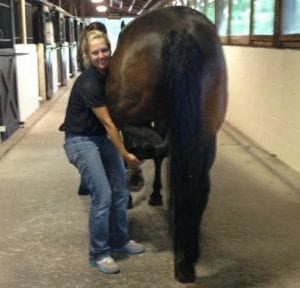 Dr. Roth: A ‘standard’ or ‘typical’ pre-purchase includes a physical exam, a lameness exam, including jogging and flexing, as well as radiographs of the front feet, hocks and stifles. No pre-purchase is alike and based on the [horse’s] history things can be added or removed.
Dr. Roth: A ‘standard’ or ‘typical’ pre-purchase includes a physical exam, a lameness exam, including jogging and flexing, as well as radiographs of the front feet, hocks and stifles. No pre-purchase is alike and based on the [horse’s] history things can be added or removed.
For instance, drug testing, airway scopes and additional radiographs are often added. Many factors affect what is completed at a pre-purchase. These factors include: budget, history of lameness, lameness or positive flexions on that day, the age of the horse, future workload and type of work.
Lagace: If we are vetting a horse in our area, we use our vet to do the pre-purchase. If I have to get it vetted out in another state, I will use a local vet and have them send their report and x-rays to my vet up here. Then, she will speak to them.
If we have a buyer who is looking at a horse in our barn, I will call in a vet that we don’t usually use and suggest to them to send the findings to their regular vet. As a general rule, I x-ray front feet, hocks and stifles. If anything flexes out questionable, I will also ask to x-ray that particular joint. If it will be resold or it is for a client who is very concerned about any defects in the horse, I would then do the fetlocks and back also.
What do you discuss before the PPE is scheduled?
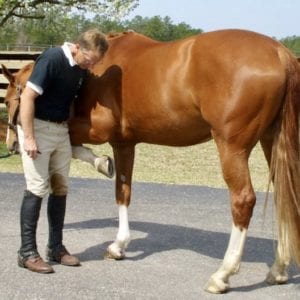
Dr. Roth: We like to know why the client is buying the horse. This includes questions like what they will be using the horse for, who will be showing it, what kind of work/training has the horse been in and who has been riding/showing it. We also ask how many times the client or their trainer has gotten to ride the horse.
These questions help us understand the client’s needs and a bit about how well they know the horse. We then ask the buyer how extensive of a pre-purchase they would like. This often reflects how much they are buying the horse for or if the owner has had previous lameness issues in the past with a previous horse.
Lagace: I discuss the pre-purchase at length with my buyers. I think it is essential for them to understand that it is a snapshot of that horse on that particular day. It doesn’t mean there is any guarantee that everything will be the same the following week.
We discuss what we are buying the horse for. Is it for long term goals for the buyers or short term? If it is short-term, we need to make sure the horse will be an easy resell. I do speak with the vets ahead of time, so they are aware of our vetting needs.
What costs can usually be expected with a PPE and who is responsible for the bill?
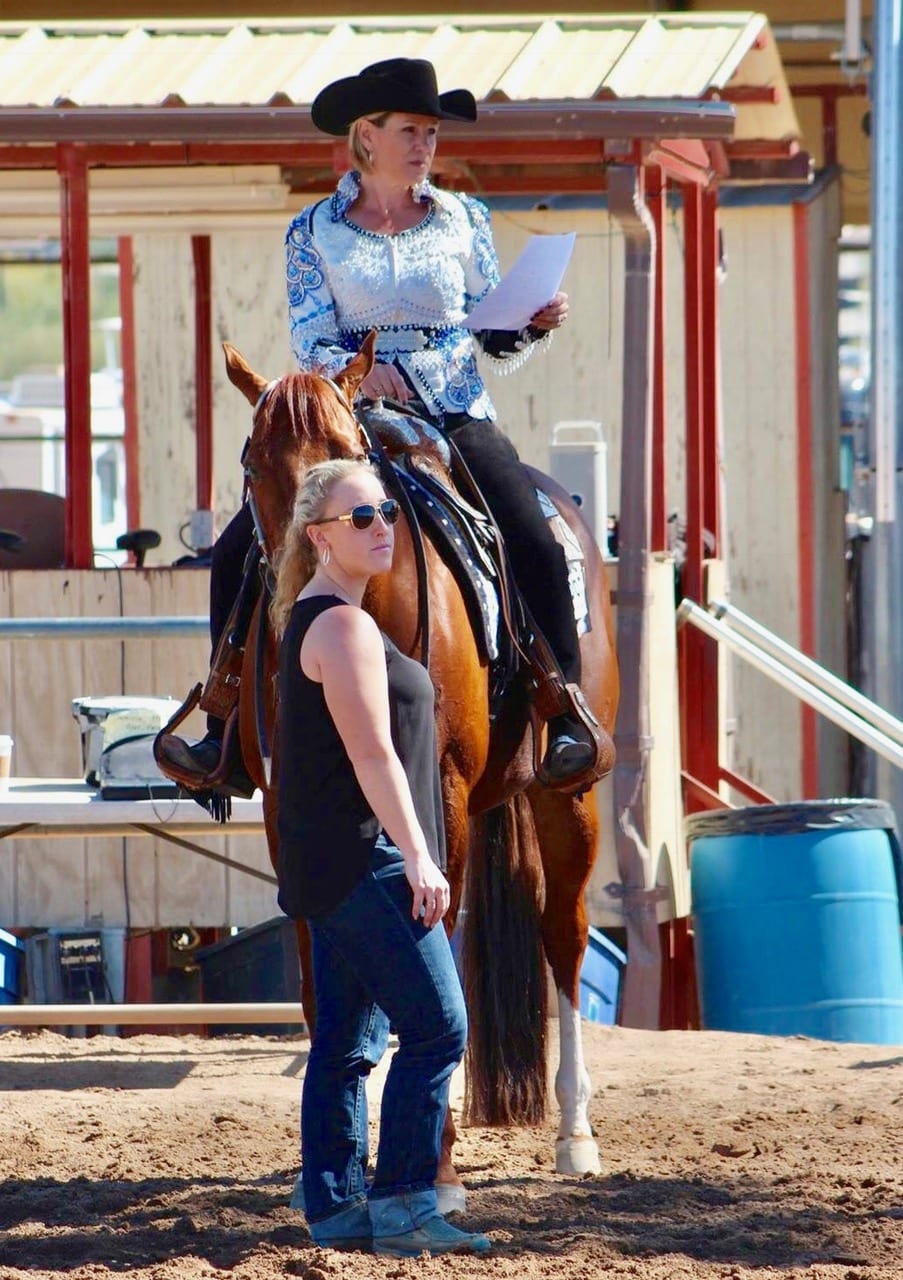 Dr. Roth: A pre-purchase exam fee includes the physical exam as well as the lameness exam. Radiographs are typically charged per view, and many joints need four views per joint to assess future soundness. Additional costs such as a drug-screening laboratory fee, if screening is done, and a sedation fee may be charged if the horse needs to be sedated to obtain radiographs.
Dr. Roth: A pre-purchase exam fee includes the physical exam as well as the lameness exam. Radiographs are typically charged per view, and many joints need four views per joint to assess future soundness. Additional costs such as a drug-screening laboratory fee, if screening is done, and a sedation fee may be charged if the horse needs to be sedated to obtain radiographs.
Lagace: The cost of the pre-purchase exam can vary a lot. All depends on how much information you want on the horse. The buyer of the horse usually incurs the cost of the pre-purchase. A few breeders go ahead and take x-rays before they put a horse up for sale to make sure everything looks good. It is very appreciated when they do that.
What happens after the PPE? How are results determined?
Dr. Roth: At our practice, we do not pass/fail horses. We present any lameness or radiographic changes that we have found and inform the buyer of potential issues or our prognosis with those findings and allow them to assess the information.
Lagace: For me, it is essential that they flex out well and the x-rays show minimal changes in the joints. My vet’s input is vital to me seeing as she is the one who will be in charge of making sure the horse stays sound so it can do its job. Her opinion weighs heavily on my final decision. I think few vets use the old school terminology pass or fail. I think it is a veterinarian’s job to give the trainers and buyers the information about the horse, then we need to decide what we can live with.
Are the results of a PPE kept private?
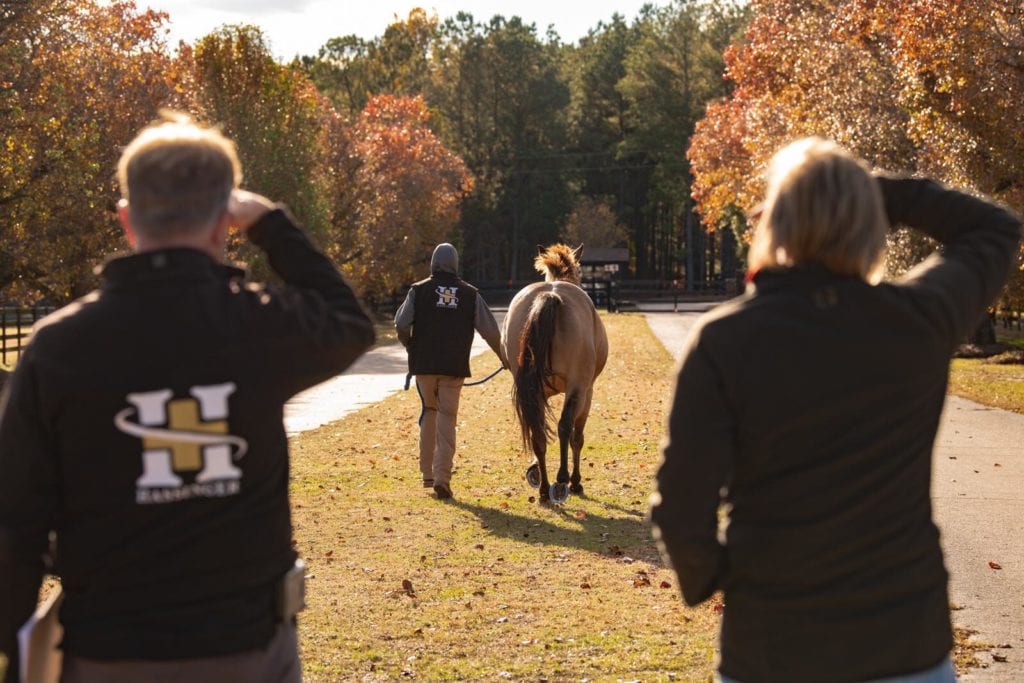 Dr. Roth: The buyer is the one who owns the medical information found during the pre-purchase exam. The buyer is the one who has the option to share the information with the seller. If they share the data, we will explain our findings to the seller just as we did to the buyer.
Dr. Roth: The buyer is the one who owns the medical information found during the pre-purchase exam. The buyer is the one who has the option to share the information with the seller. If they share the data, we will explain our findings to the seller just as we did to the buyer.
Lagace: Lots of information will be found on a pre-purchase exam. If it is on a horse we have looked at to buy, we keep [PPE results] information to ourselves. I strongly feel there is an element of due diligence for the sellers to reveal the vital info to the next buyer then.
Three different vets can have very different opinions on the same thing. What’s important to one, may not stress the other at all. That is for you to figure out with your vet. I make it my practice to reveal if something significant has been found in a previous pre-purchase so everyone is informed.
What are your tips for successful PPE experiences? Let us know.
About the Author – A native Michigander, Rachel Kooiker is a lover of horses who loves to write. She competes in all-around Amateur events with her APHA gelding, Hoos Real. She graduated from Grand Valley State University with a BA in English and Psychology and an MA in Curriculum & Instruction. She and her husband Drew operate Kooiker Show Horses, where they raise select Halter and Performance prospects.


